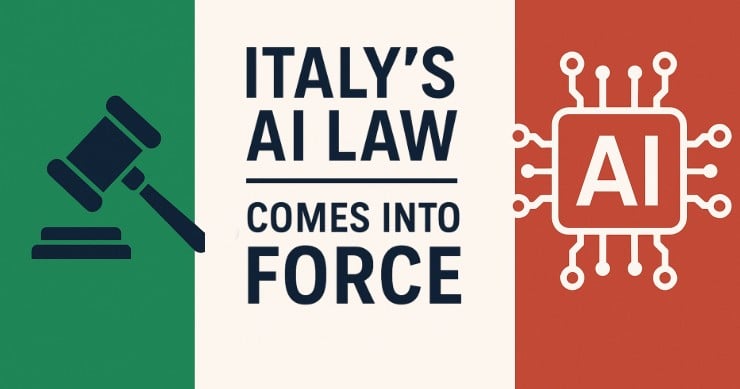
意大利将于2025年10月10日率先实施全国性人工智能法律,成为欧盟首个采取此类措施的国家。该法律设定了以人为本的AI治理框架,包括透明度、隐私和安全原则,并指定监管机构监督执行。同时引入刑事处罚以应对AI滥用,并加强儿童保护措施。 2025-10-5 01:18:6 Author: securityboulevard.com(查看原文) 阅读量:1 收藏
On October 10, 2025, Italy will become the first EU member state to bring a national artificial intelligence law into force, moving ahead of the bloc’s landmark EU AI Act. Law No. 132 of 2025, published in the Gazzetta Ufficiale in late September, positions Italy at the center of Europe’s evolving AI governance landscape.
The EU AI Act, which will begin applying across the bloc in 2026, is designed to harmonize rules for the development and use of AI. Italy decided not to wait. Lawmakers approved a domestic framework to bridge the gap between policy and practice, adding national oversight and enforcement mechanisms while EU implementation ramps up. The law sets out a human-centric approach to AI, emphasizing transparency, privacy, and safety. Once in force, it will become the first comprehensive national AI framework in the European Union.

Although the EU AI Act will eventually apply directly, many of its obligations will phase in gradually. Italy’s parliament wanted to move faster and give national regulators and organizations a year-long head start. The EU framework also leaves room for member states to legislate in areas such as enforcement structures, criminal law, child protection, and innovation funding. Italy used that space to shape its approach.
Law No. 132/2025 designates two national authorities, the Agency for Digital Italy and the National Cybersecurity Agency, to oversee compliance domestically. It introduces criminal penalties for the harmful use of AI, including deepfakes, with prison sentences of up to five years where harm occurs. It also tightens child protection rules, requiring parental consent for anyone under 14 to use AI tools. And to support domestic development alongside regulation, the government is launching a €1 billion innovation fund for AI, cybersecurity, and telecom infrastructure.
The law applies to AI systems across critical sectors, including healthcare, justice, education, public administration, and employment. Organizations must ensure their systems are traceable, explainable, and subject to human oversight, especially where they affect individuals’ rights. Copyright rules are also tightened: AI systems may only mine non-copyrighted data or material authorized for scientific research.
Compared to the EU AI Act, Italy’s framework stands out for its immediacy and specificity. Whereas the EU Act’s obligations will roll out over time, Italy’s apply from day one. From October 10 onward, organizations operating in Italy will need to document how their AI systems work, establish human oversight processes, manage parental consent for minors, and prepare for inspections or enforcement by national authorities.
Italy’s early move signals a new phase in Europe’s AI governance, in which national frameworks shape real-world practice ahead of EU deadlines. Other member states may follow suit, particularly on child protection and criminal enforcement.
The post Italy’s AI Law Comes Into Force appeared first on Centraleyes.
*** This is a Security Bloggers Network syndicated blog from Centraleyes authored by Rebecca Kappel. Read the original post at: https://www.centraleyes.com/italys-ai-law-comes-into-force/
如有侵权请联系:admin#unsafe.sh
